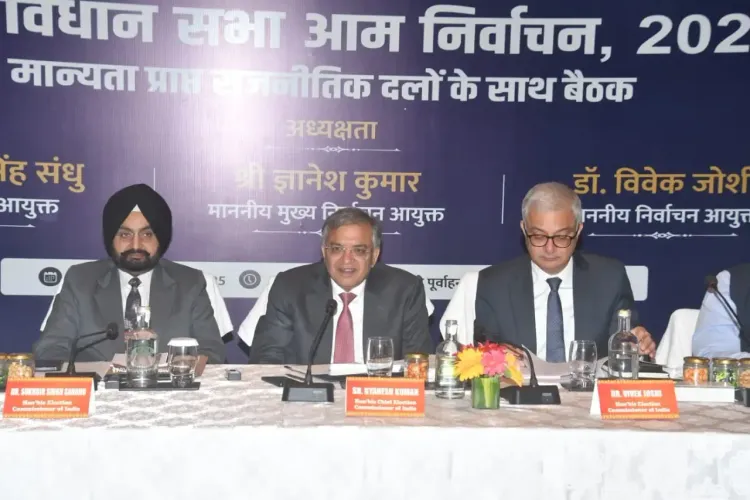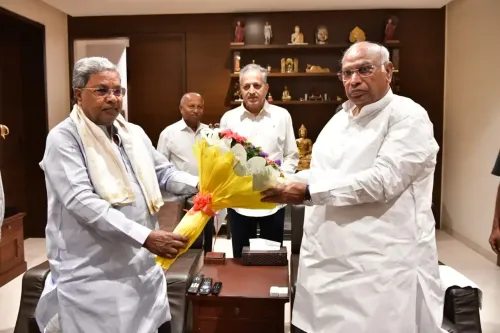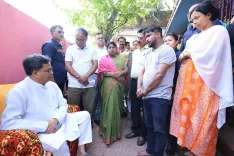How is ECI Assessing Bihar Poll Readiness?

Synopsis
Key Takeaways
- Political parties are essential stakeholders in the electoral process.
- The ECI emphasizes voter participation by scheduling elections strategically.
- Recent initiatives aim for fairness and transparency in elections.
- Collaboration between ECI and parties enhances trust in the system.
- Monitoring of social media is critical to counter misinformation.
New Delhi, Oct 4 (NationPress) Chief Election Commissioner (CEC) Gyanesh Kumar described political parties as vital players in a robust democracy as the Election Commission of India (ECI) commenced a two-day assessment of election readiness for the forthcoming high-stakes Bihar Assembly elections.
Accompanied by Election Commissioners Sukhbir Singh Sandhu and Vivek Joshi, CEC Kumar engaged in comprehensive discussions in Patna with representatives from various national and state parties, including BJP, Congress, JD(U), RJD, LJP (Ram Vilas), RLJP, CPI, CPI(M), CPI(ML-Liberation), BSP, AAP, and NPP.
The Commission urged political parties to actively engage in the electoral process by designating polling and counting agents and to celebrate elections with a festive spirit alongside voters.
Political parties expressed gratitude to the ECI for completing the Special Intensive Revision (SIR) and cleansing electoral rolls, reaffirming their confidence in the electoral system.
To enhance voter participation, political parties suggested scheduling elections right after the Chhath festival and aiming for minimal phases for the election process, as mentioned in the ECI's press release.
They commended recent ECI measures, which include limiting the number of voters per polling station to 1,200, ensuring timely counting of postal ballots before final EVM counts, and requiring that Form 17C be provided to party agents prior to polling staff departing the station.
After discussions with political parties, the Commission conducted a thorough review with Commissioners, IGs, DIGs, DEOs, SSPs, and SPs regarding every facet of election planning, including EVM management, logistics, polling station optimization, election staff training, law enforcement, and voter outreach efforts.
In accordance with feedback from political parties, the Commission instructed district administrations and law enforcement to operate with complete neutrality and swiftly address complaints.
Officials were also directed to vigilantly monitor social media platforms, counter misinformation, and take legal action against false information when necessary.
All political parties expressed unwavering trust in the Commission's ability to uphold its mandate for free, fair, and transparent elections.









